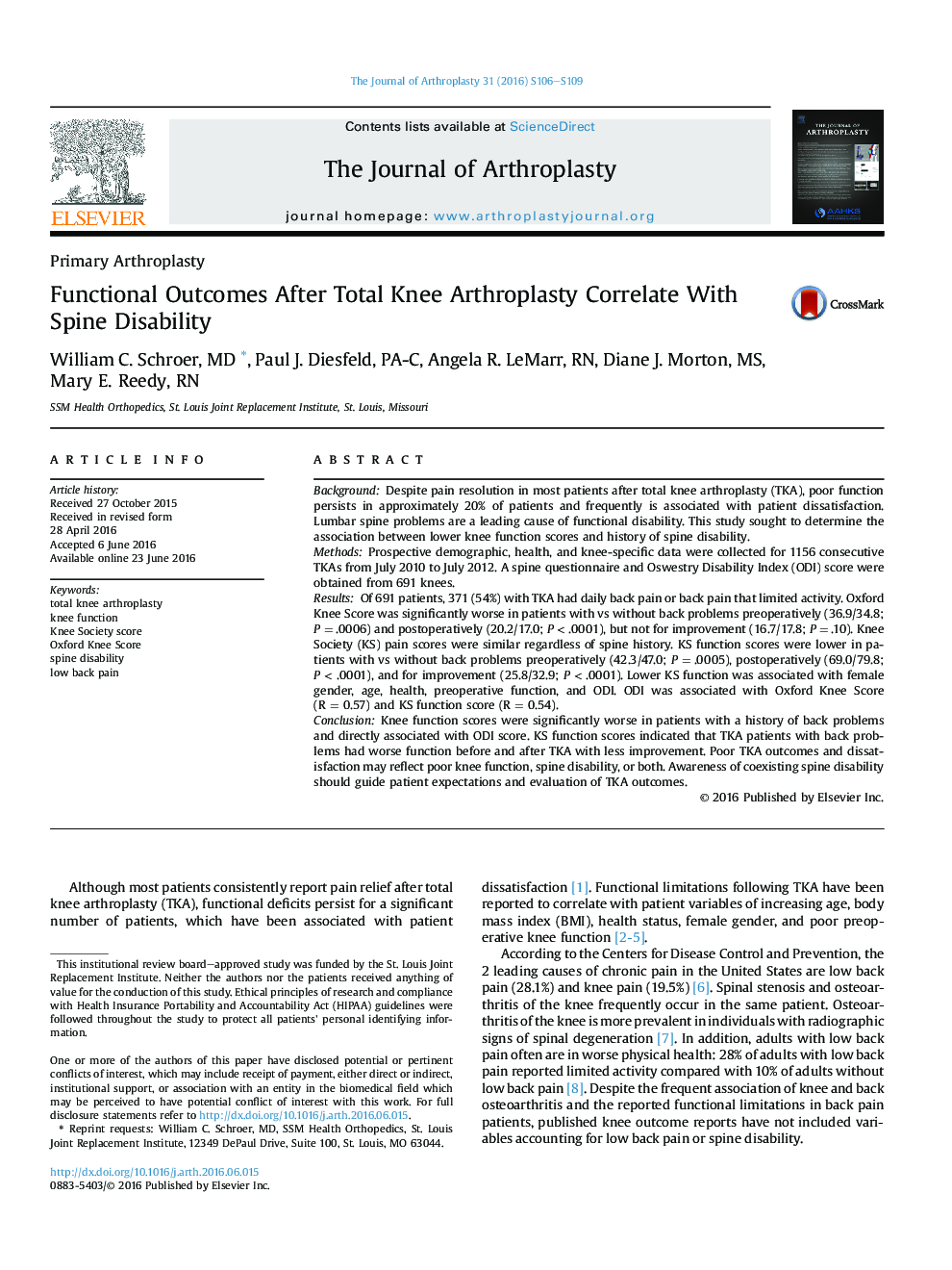| کد مقاله | کد نشریه | سال انتشار | مقاله انگلیسی | نسخه تمام متن |
|---|---|---|---|---|
| 6208345 | 1603973 | 2016 | 4 صفحه PDF | دانلود رایگان |
BackgroundDespite pain resolution in most patients after total knee arthroplasty (TKA), poor function persists in approximately 20% of patients and frequently is associated with patient dissatisfaction. Lumbar spine problems are a leading cause of functional disability. This study sought to determine the association between lower knee function scores and history of spine disability.MethodsProspective demographic, health, and knee-specific data were collected for 1156 consecutive TKAs from July 2010 to July 2012. A spine questionnaire and Oswestry Disability Index (ODI) score were obtained from 691 knees.ResultsOf 691 patients, 371 (54%) with TKA had daily back pain or back pain that limited activity. Oxford Knee Score was significantly worse in patients with vs without back problems preoperatively (36.9/34.8; PÂ = .0006) and postoperatively (20.2/17.0; P < .0001), but not for improvement (16.7/17.8; PÂ = .10). Knee Society (KS) pain scores were similar regardless of spine history. KS function scores were lower in patients with vs without back problems preoperatively (42.3/47.0; PÂ = .0005), postoperatively (69.0/79.8; PÂ < .0001), and for improvement (25.8/32.9; P < .0001). Lower KS function was associated with female gender, age, health, preoperative function, and ODI. ODI was associated with Oxford Knee Score (RÂ =Â 0.57) and KS function score (RÂ = 0.54).ConclusionKnee function scores were significantly worse in patients with a history of back problems and directly associated with ODI score. KS function scores indicated that TKA patients with back problems had worse function before and after TKA with less improvement. Poor TKA outcomes and dissatisfaction may reflect poor knee function, spine disability, or both. Awareness of coexisting spine disability should guide patient expectations and evaluation of TKA outcomes.
Journal: The Journal of Arthroplasty - Volume 31, Issue 9, Supplement, September 2016, Pages 106-109
